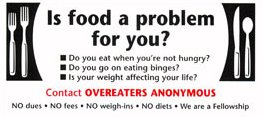
This is the first pamphlet ever written concerning sponsorship. It was written by Clarence H. Snyder in early 1944. Its original title was to be "AA Sponsorship...Its Obligations and Its Responsibilities." It was printed by the Cleveland Central Committee under the title:
"AA Sponsorship . . . Its Opportunities and Its Responsibilities."
PREFACE
Each member of Alcoholics Anonymous is a potential sponsor of a new member and should clearly recognize the obligations and duties of such responsibility.
The acceptance of an opportunity to take the AA plan to a sufferer of alcoholism entails very real and critically important responsibilities. Each member, undertaking the sponsorship of a fellow alcoholic, must remember that he is offering what is frequently the last chance of rehabilitation, sanity or maybe life itself.
Happiness, Health, Security, Sanity and Life of human beings are the things we hold in balance when we sponsor an alcoholic.
No member among us is wise enough to develop a sponsorship program that can be successfully applied in every case. In the following pages, however, we have outlined a suggested procedure, which supplemented by the member's own experience, has proven successful.
PERSONAL GAINS OF BEING A SPONSOR
No one reaps full benefit from any fellowship he is connected with unless he wholeheartedly engages in its important activities. The expansion of Alcoholics Anonymous to wider fields of greater benefit to more people results directly from the addition of new, worth-while members or associates.
Any AA who has not experienced the joys and satisfaction of helping another alcoholic regain his place in life has not yet fully realized the complete benefits of this fellowship. On the other hand, it must be clearly kept in mind that the only possible reason for bringing an alcoholic into AA is for that person's gain. Sponsorship should never be undertaken to :
Increase the size of the group
For personal satisfaction and glory
Because the sponsor feels it his duty to re-make the world.
Until an individual has assumed the responsibility of setting a shaking, helpless human being back on the path toward becoming a healthy useful, happy member of society, he has not enjoyed the complete thrill of being an AA
SOURCE OF NAMES
Most people have among their own friends and acquaintances someone who would benefit from our teachings. Others have names given to them by their church, by their doctor, by their employer, or by some other member, who cannot make a direct contact.
Because of the wide range of the AA activities, the names often come from unusual and unexpected places. These cases should be contacted as soon as all facts such as: marital status, domestic relations, financial status, drink habits, employment status and others readily obtainable are at hand.
IS THE PROSPECT A CANDIDATE?
Much time and effort can be saved by learning as soon as possible if :
The man really has a drinking problem?
Does he know he has a problem?
Does he want to do something about his drinking?
Does he want help?
Sometimes the answers to these questions cannot be made until the prospect has had some AA instruction, and an opportunity to think. Often we are given names, which upon investigation, show the prospect is in no sense an alcoholic, or is satisfied with his present plan of living. We should not hesitate to drop these names from our lists. Be sure, however, to let the man know where he can reach us at a later date.
WHO SHOULD BECOME MEMBERS?
AA is a fellowship of men and women bound together by their inability to use alcohol in any form sensibly, or with profit or pleasure. Obviously, any new members introduced should be the same kind of people, suffering from the same disease.
Most people can drink reasonably, but we are only interested in those who cannot. Party drinkers, social drinkers, celebrators, and others who continue to have more pleasure than pain from their drinking, are of no interest to us.
In some instances an individual might believe himself to be a social drinker when he definitely is an alcoholic. In many such cases more time must pass before that person is ready to accept our program. Rushing such a man before he is ready might ruin his chances of ever becoming a successful AA. Do not ever deny future help by pushing too hard in the beginning.
Some people, although definitely alcoholic, have no desire or ambition to better their way of living, and until they do........ AA has nothing to offer them.
Experience has shown that age, intelligence, education, background, or the amount of liquor drunk, has little, if any, bearing on whether or not the person is an alcoholic.
PRESENTING THE PLAN
In many cases a man's physical condition is such that he should be placed in a hospital, if at all possible. Many AA members believe hospitalization, with ample time for the prospect to think and plan his future, free from domestic and business worries, offers distinct advantage. In many cases the hospitalization period marks the beginning of a new life. Other members are equally confident that any man who desires to learn the AA plan for living can do it in his own home or while engaged in normal occupation. Thousands of cases are treated in each manner and have proved satisfactory.
SUGGESTED STEPS
The following paragraphs outline a suggested procedure for presenting the AA plan to the prospect, at home or in the hospital.
QUALIFY AS AN ALCOHOLIC
1. In calling upon a new prospect, it has been found best to qualify oneself as an ordinary person who has found happiness, contentment, and peace of mind through AA Immediately make it clear to the prospect that you are a person engaged in the routine business of earning a living. Tell him your only reason for believing yourself able to help him is because you yourself are an alcoholic and have had experiences and problems that might be similar to his.
TELL YOUR STORY
2. Many members have found it desirable to launch immediately into their personal drinking story, as a means of getting the confidence and whole-hearted co-operation of the prospect.
It is important in telling the story of your drinking life to tell it in a manner that will describe an alcoholic, rather than a series of humorous drunken parties. This will enable the man to get a clear picture of an alcoholic which should help him to more definitely decide whether he is an alcoholic.
INSPIRE CONFIDENCE IN AA
3. In many instances the prospect will have tried various means of controlling his drinking, including hobbies, church, changes of residence, change of associations, and various control plans. These will, of course, have been unsuccessful. Point out your series of unsuccessful efforts to control drinking...their absolute fruitless results and yet that you were able to stop drinking through application of AA principles. This will encourage the prospect to look forward with confidence to sobriety in AA in spite of the many past failures he might have had with other plans.
TALK ABOUT "PLUS" VALUES
4. Tell the prospect frankly that he can not quickly understand all the benefits that are coming to him through AA. Tell him of the happiness, peace of mind, health, and in many cases, material benefits which are possible through understanding and application of the AA way of life.
SHOW IMPORTANCE OF READING THE BIG BOOK
5. Explain the necessity of reading and re-reading the AA Big Book. Point out that this book gives a detailed description of the AA tools and the suggested methods of application of these tools to build a foundation of rehabilitation for living. This is a good time to emphasize the importance of the twelve steps.
QUALITIES REQUIRED FOR SUCCESS IN AA
6. Convey to the prospect that the objectives of AA are to provide the ways and means for an alcoholic to regain his normal place in life. Desire, patience, faith, study and application are most important in determining each individual's plan of action in gaining full benefits of AA
INTRODUCE FAITH
7. Since the belief of a Power greater than oneself is the heart of the AA plan, and since this idea is very often difficult for a new man, the sponsor should attempt to introduce the beginnings of an understanding of this all-important feature.
Frequently this can be done by the sponsor relating his own difficulty in grasping a spiritual understanding and the methods he used to overcome his difficulties.
LISTEN TO HIS STORY
8. While talking to the newcomer, take time to listen and study his reactions in order that you can present your information in a more effective manner. Let him talk too. Remember...Easy Does It.
TAKE TO SEVERAL MEETINGS
9. To give the new member a broad and complete picture of AA, the sponsor should take him to various meetings within convenient distance of his home. Attending several meetings gives a new man a chance to select a group in which he will be most happy and comfortable, and it is extremely important to let the prospect make his own decision as to which group he will join. Impress upon him that he is always welcome at any meeting and can change his home group if he so wishes.
EXPLAIN AA TO PROSPECT'S FAMILY
10. A successful sponsor takes pains and makes any required effort to make certain that those people closest and with the greatest interest in their prospect (mother, father, wife, etc.) are fully informed of A.A., its principles and its objectives. The sponsor sees that these people are invited to meetings, and keeps them in touch with the current situation regarding the prospect at all times.
HELP PROSPECT ANTICIPATE HOSPITAL EXPERIENCE
11. A prospect will gain more benefit from a hospitalization period if the sponsor describes the experience and helps him anticipate it, paving the way for those members who will call on him.
CONSULT OLDER MEMBERS IN AA
These suggestions for sponsoring a new man in AA teachings are by no means complete. They are intended only for a framework and general guide. Each individual case is different and should be treated as such. Additional information for sponsoring a new man can be obtained from the experience of older men in the work. A co-sponsor, with an experienced and newer member working on a prospect, has proven very satisfactory. Before undertaking the responsibility of sponsoring, a member should make certain that he is able and prepared to give the time, effort, and thought such an obligation entails. It might be that he will want to select a co-sponsor to share the responsibility, or he might feel it necessary to ask another to assume the responsibility for the man he has located.













